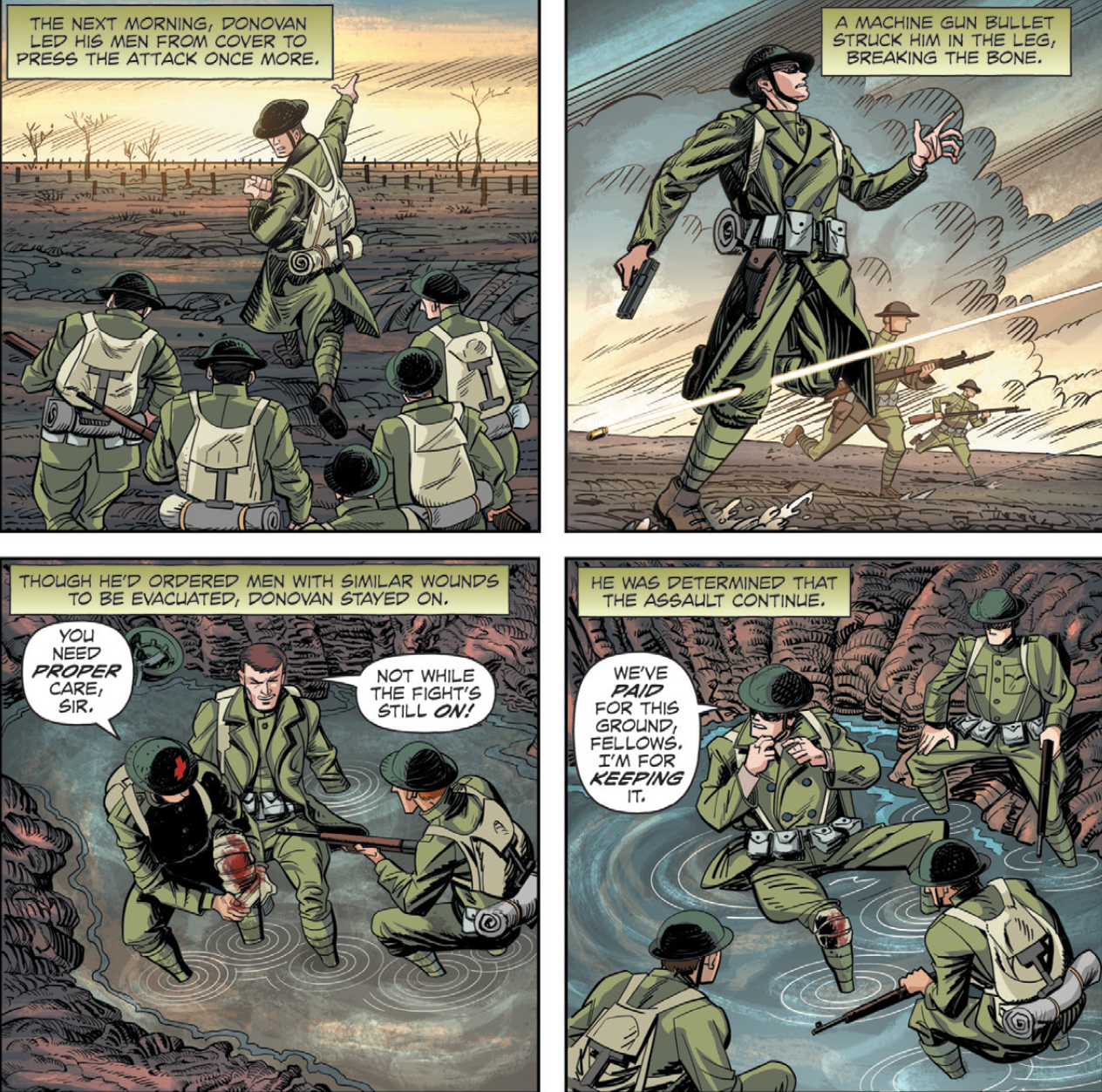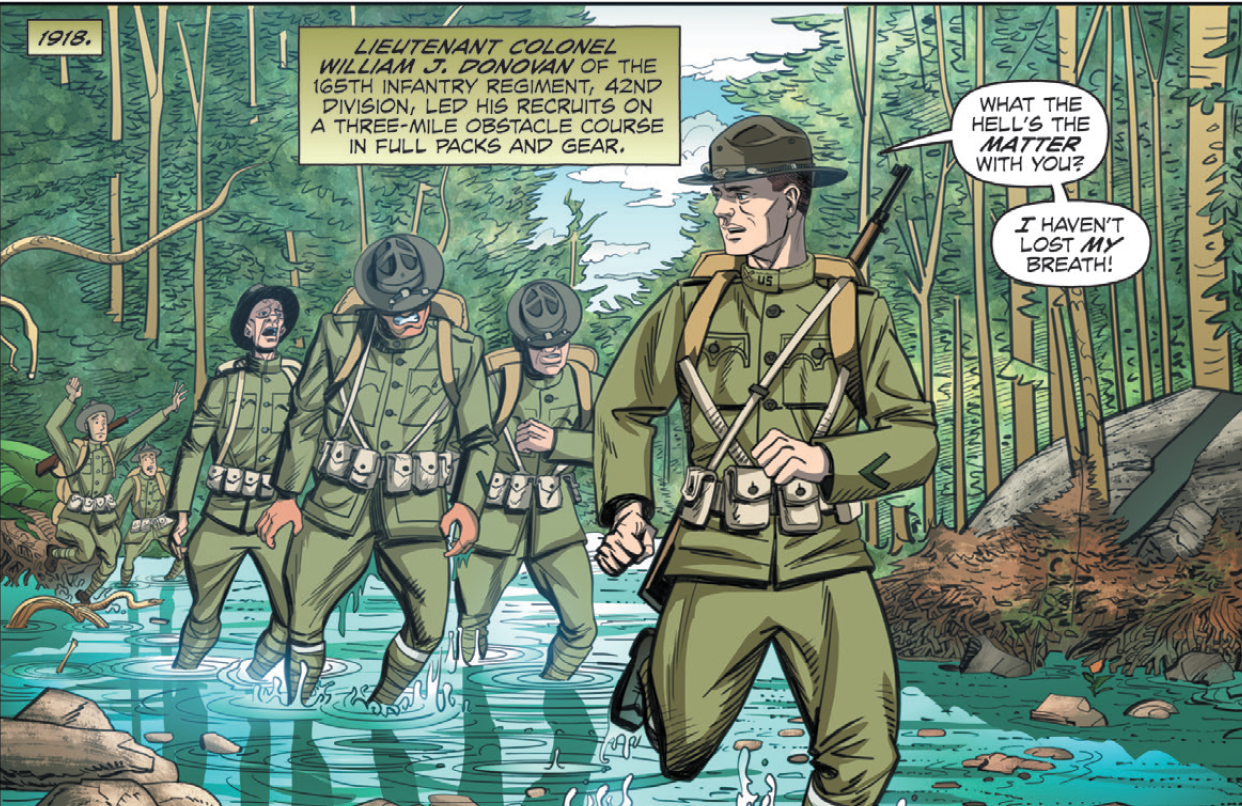In its latest illustrated series dedicated to soldiers whose actions earned them the nation’s highest award for military valor, AUSA is profiling the man perhaps best known as the spymaster who created the OSS, the forerunner to the CIA, during World War II.
William “Wild Bill” Donovan, is the only American to have received the nation’s four highest awards, the Medal of Honor, the Distinguished Service Cross, the Distinguished Service Medal, and the National Security Medal
While Donovan’s WWII exploits are fairly well-known, AUSA’s latest graphic novel highlights his time in the trenches of World War I.
“Many people associate ‘Wild Bill’ Donovan with the Office of Strategic Services, the World War II intelligence group that famously called itself ‘PhDs that can win a bar fight.’ This new graphic novel focuses on his amazing military exploits in World War I, where he was decorated — and wounded — many times over,” said Joseph Craig, AUSA’s Book Program director.
A lieutenant colonel in the Army, the former lawyer deployed to France with the 165th Infantry Regiment, 42nd Division.
According to Military.com, when Donovan joined, the unit was still known as New York City’s legendary 69th Regiment, dubbed the “Fighting Irish Regiment” in a nod to the ethnic background of many of its soldiers.
Before even setting foot on French soil, Donovan earned what would be his enduring nickname “Wild Bill” after he repeatedly beat his men during the obstacle course in basic — and then taunted them for being out breath.
Donovan purportedly disliked the nickname, but it stuck.
It’s perhaps better than the first suggested name of “Wild’n Out Billy D”. Rather a mouthful and much harder to quickly spit out while in a combat zone.
Donovan and the 69th Regiment first saw action during the Second Battle of the Marne — the last major German offensive on the Western Front.
Despite being wounded, Donovan continued to direct his greatly outnumbered battalion to eventually overcome the German onslaught. For his actions in July 1918, “Wild Bill” received the Purple Heart and the Distinguished Service Medal.

In October of that year Donovan once again distinguished himself on the battlefield during the Meuse-Argonne Offensive. Leading a forward attack on the Hindenburg Line, his units became dispirited and faltered under heavy machine-gun and artillery fire. Donovan, according to his Medal of Honor citation:
personally led the assaulting wave in an attack upon a very strongly organized position, and when our troops were suffering heavy casualties he encouraged all near him by his example, moving among his men in exposed positions, reorganizing decimated platoons, and accompanying them forward in attacks. When he was wounded in the leg by machine-gun bullets, he refused to be evacuated and continued with his unit until it withdrew to a less exposed position.
It was not until 1923, however, that Donovan was recognized for his WWI exploits. Over 4,000 veterans attended his Medal of Honor ceremony, forever cementing Donovan’s legacy, and, much to his chagrin, the moniker “Wild Bill”.
The major then promptly donated the medal to his regiment, “to the boys who are not here, the boys who are resting under white crosses in France or the cemeteries of New York, and to the boys lucky enough to come through.”
The Medal of Honor graphic novel series was launched by AUSA in October 2018, with “Wild Bill” Donovan’s novel the 11th in the series. The digital graphic novels are available here.





